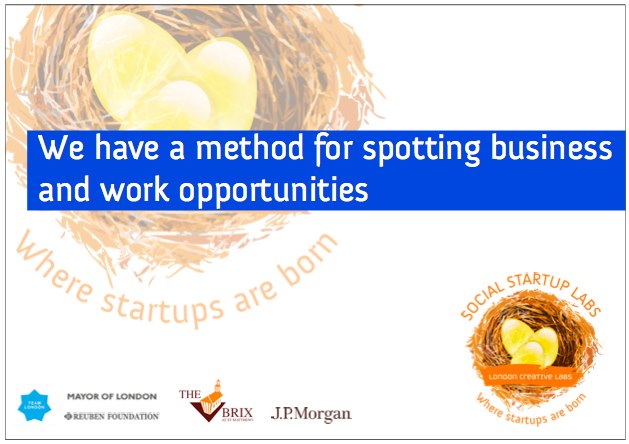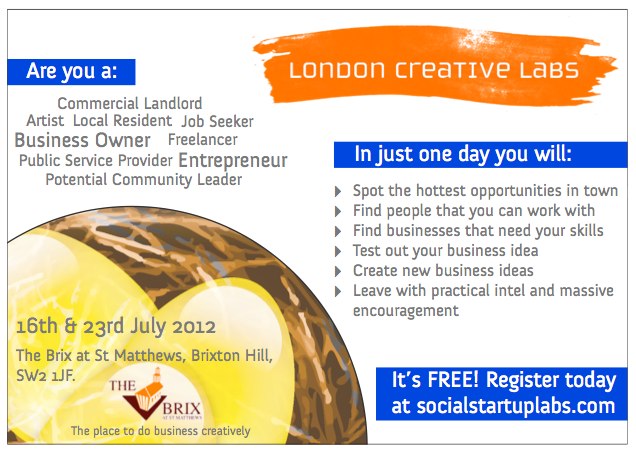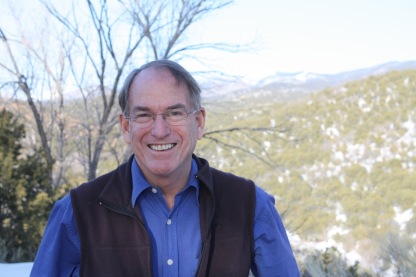Editor’s note: This is a guest post from Mamading Ceesay.
This week, I'm in Nairobi, Kenya to attend the Africa-Middle East Regional Microcredit Summit aka AMFI on behalf of London Creative Labs. Before the Summit proper begins, attendees had the opportunity to go on field visits with local Microfinance Institutions (MFIs). I chose to go on a field visit organized by Equity Bank.
We were first taken to Equity's corporate headquarters on the outskirts of Nairobi. There we were briefed by Dr. James Mwangi MBS, its Chief Executive Officer & Managing Director. He is an inspirational, passionate and transformational leader who clearly lives and breathes the Equity Bank vision. No wonder, the Financial Times named him one of the top 50 emerging market business leaders who have shaped the economic performance of their respective regions.
“To be the champion of the socio-economic prosperity of the people of Africa.”
— Equity Bank Vision Statement
About Equity Bank
“The most exciting aspect of Equity's journey- from a humble, floundering, but deeply ambitious building society to an African Success story- is its partnership with the "bottom of the pyramid".”
— From the Equity Bank Annual Report & Financial Statements 2009
The Equity Bank story started 25 years ago as an indigenously owned Kenyan building society. In 1994, it made a defining mission shift from mortgage financing to microfinance after nearly being liquidated by the Central Bank of Kenya in 1992. As a building society, Equity had struggled with the constraints imposed on it under the Building Societies Act, which didn't fit with the business activities it was actually undertaking.
The shift to microfinance happened in the year that James Mwangi joined the Board and management team as Executive Finance Director and assumed leadership of operational management. Mwangi's leadership has proved to be pivotal in the transformation of Equity.
Mwangi redefined the vision and mission of Equity and evangelized it through the organisation. He pushed the provision of training to build technical skills and boost confidence for achieving the vision. He delegated responsibility, created incremental challenges, rewarded performance, flattened the organisational structure and changed the corporate culture. In 2004, Mwangi became CEO and Equity formally converted from a building society to a commercial bank. Equity listed on the Nairobi Stock Exchange in August 2006.
Equity has 52% of all deposit savings accounts in Kenya. It is the most capitalised bank in East and Central Africa. There are 3-5,000 new accounts opened with Equity per day. 78 per cent of Equity account holders were previously unbanked. Equity has the best bank branch network in Kenya and half of the ATMs in the country. It handles 82% of all bank transactions in Kenya. Since Mwangi's ascent to CEO, Equity's growth already strong has become spectacular, aided in part by a strong IT platform which isn't fragmented by branches as is the case in many more established banks. Besides Kenya, Equity is a player in Uganda, having acquired Uganda Microfinance Limited the leading microfinance institution in that country and has a presence in Rwanda and Sudan.
Equity predominantly hires graduates straight from university. It "hires for attitude and trains for skills". In particular, one attitude that is closely examined at the interview stage, is the prospective recruit's attitude to service. If someone doesn't have the prerequisite dedication to customer service, they will be a poor fit for Equity. Equity's single biggest expense is staff training and development. The benefit of hiring recent graduates is that they can be more easily be taught the Equity way of doing things.
“There's only one way, the Equity way!”
— Dr James Mwangi, CEO & MD, Equity Bank
About Equity Bank's customers
“We offer inclusive, customer-focused financial services that socially and economically empower our clients and other stakeholders.”
— Equity Bank Mission Statement
Equity offers financial services for individuals, small and micro businesses with a particular emphasis on those who have low incomes and/or don't have a bank account. Kenya has a population of 40 million, of whom only 7 million have bank accounts. The other 33 million are keeping what little savings they have under the mattress.
“Equity Bank has to be more competitive than the mattress!”
— Dr James Mwangi, CEO & MD, Equity Bank
60% of Kenya's population is under 30 and there is a 40% unemployment rate. As a result, Equity does a lot of work with youth. It also has a strong focus on the informal sector which accounts for 94% of Kenya's GDP. Peasant farming is most of the economy, so Equity works to evolve peasant farming to commercial small-scale farming.
Equity emphasises the creation and maintenance of stable, end to end value chains to ensure income for their farming customers and microloan repayments. In order to achieve this, Equity develops and maintains strong expertise in the agricultural sector, so that it can properly advise and support its customers in that sector.
For those working in the agricultural sector, Equity offers a range of Kilimo credit facilities tailored for the needs of small-scale farmers, large-scale farmers and agri-businesses. Agri-businesses such as agro-dealers, importers, agro-processors and inputs manufacturers are critical parts of the value chain that allow farmers to bring their produce to market.
Equity has a huge emphasis on empowering women, offering a range of fanikisha (swahili for "it can be done") loans for individual women and women's groups as well as providing the necessary support and assistance to not just ensure loan repayments but that the lives of the women and their families, children especially improves. Women in Kenya have to deal with not just the poverty trap but also what was termed the culture trap. In Kenya, it's been traditionally the case that women could not own land and any inherited wealth was not passed down to women. Through the provision of fanikisha loans and group-oriented practices, Equity has been able to make a considerable impact on the lives of the women it serves.
Mwangi and Equity are running into the same sort of resistance to their work in empowering women that Yunus and Grameen have encountered in doing the same. I'm reminded of what Yunus said on being told that empowering women is against Bangladeshi culture. His robust response was "you can keep your culture, I'm creating a counter culture!".
In Kenya, the resistance to fanikisha is such, that a Men Against Empowering Women group has not only formed but is actually taking legal action against Equity to try to stop its programmes of empowering women. Mwangi was quite emphatic about wanting to win the court case, so that Equity can continue to empower women unimpeded.
That's all folks... for now
I'd like to write about the actual field visit and post my photos from it, but this blog post is already quite long and it's late enough that I should leave it for another day, perhaps even tomorrow!
 Saturday, April 10, 2010 at 6:49PM
Saturday, April 10, 2010 at 6:49PM  London Creative Labs is delighted to be working with Kara Pecknold to produce a brochure that helps more people understand why Grameen works, from a systems perspective. We thank her for her patience in waiting for that first draft! Get in touch if you wish to review it!
London Creative Labs is delighted to be working with Kara Pecknold to produce a brochure that helps more people understand why Grameen works, from a systems perspective. We thank her for her patience in waiting for that first draft! Get in touch if you wish to review it!





